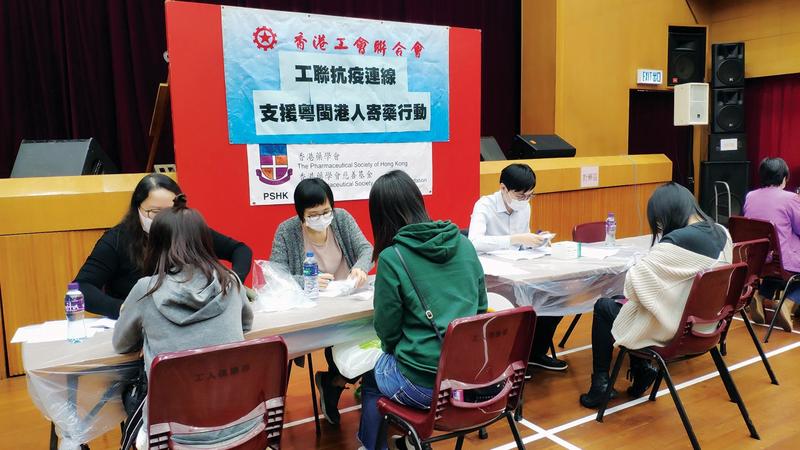Meds delivered to patients stranded on mainland


Efforts behind delivery
Volunteer pharmacists also lent a hand by checking the medications handed to the FTU to ensure the prescription medications are suitable for transport.
Scarlett Pong Oi-lan, president of the Pharmaceutical Society of Hong Kong, was one of them.
Initial plans called for all shipments to Fujian to travel by air, Pong noted. As a result, liquid preparations had to be rejected. The FTU then charted a route by land to transport the liquids, she said.
It was also difficult to transport insulin for the treatment of diabetes, as the drug must be refrigerated as long as it remains unsealed. With the patients' consent, pharmacists unsealed the insulin shipments for them to be transported at ambient temperatures. Patients were reminded that the medications must be used within four weeks.
Pharmacists also make sure medications provided by patients' family members match doctors' prescriptions, said pharmacist Chris Lam.
Sometimes, drugs got left out by mistake, or the dosage didn't match what was on the prescriptions. "We need to find out why there are such discrepancies and ensure that patients receive proper treatments," said Lam.
Pharmacists address those cases by sending a note with the medications, stating the dosage, precautions, and the Pharmaceutical Society's contact information for patients who have questions.
Lam works full-time at a community pharmacy. His supervisor gave him full support to spend two days a week working with the FTU on the program.
"Since the government is working to help patients, I think it is our responsibility as professional pharmacists to provide our expertise," said Pong.
Over a dozen Pharmaceutical Society members have volunteered, at the invitation of the government.
At the moment, the FTU ships only medications to be taken before March 31. Demand for medications required by patients during April and beyond are awaiting government arrangements.
























